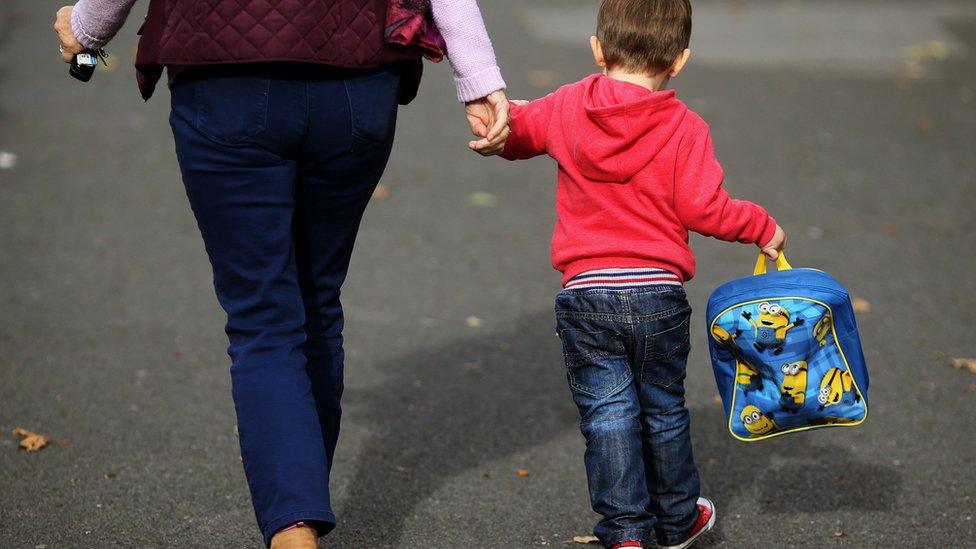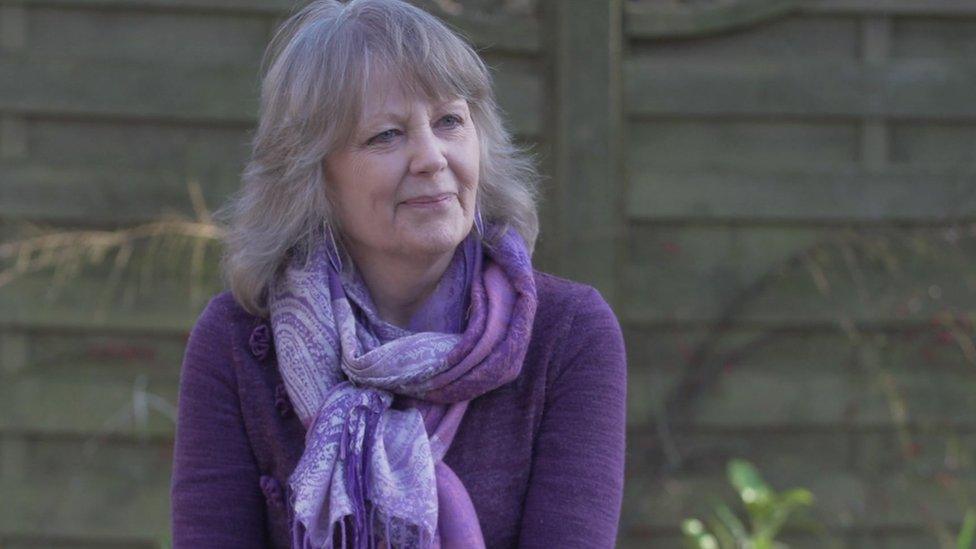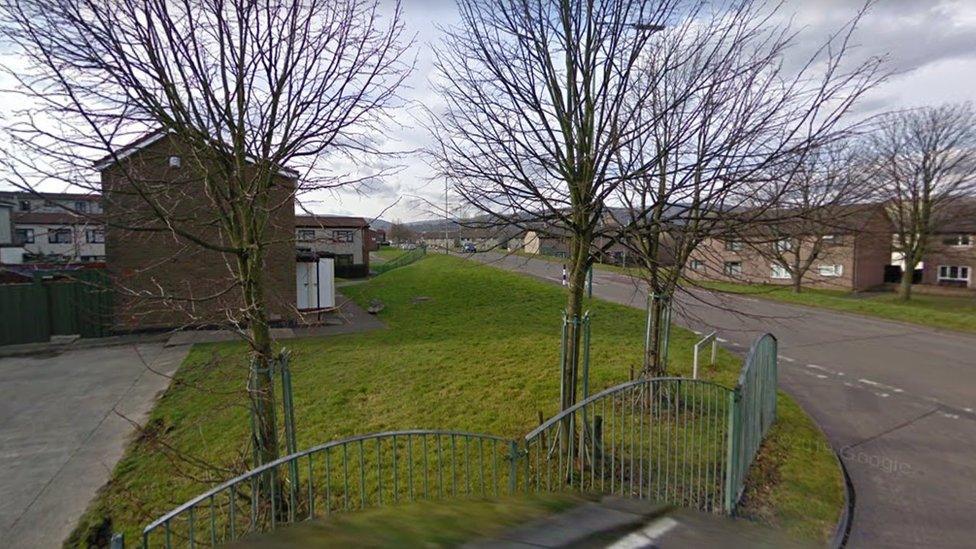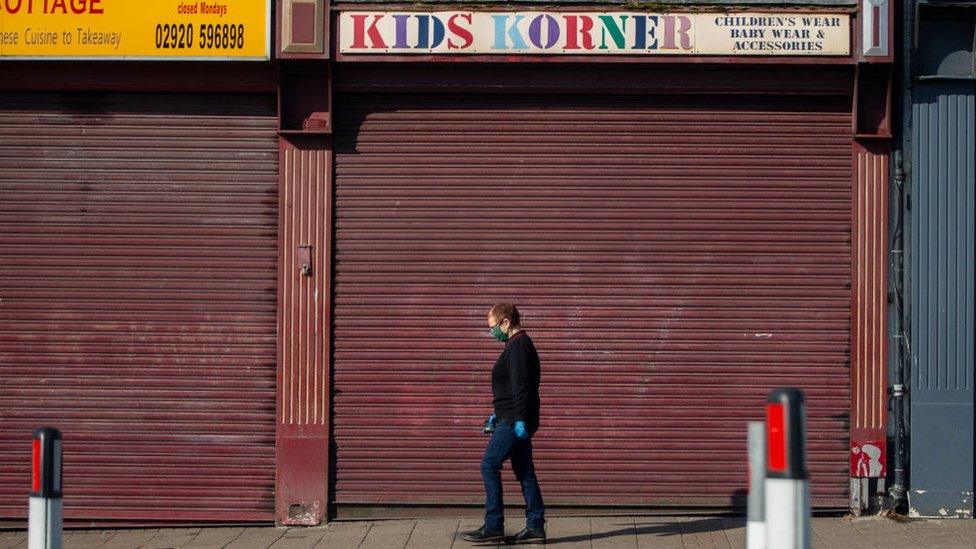Universal credit: Stephen Crabb MP says benefits squeezed too much
- Published

The squeeze on universal credit has gone too far, according to the former work and pensions secretary.
Stephen Crabb, who also served as secretary of state for Wales, said: "We haven't funded it sufficiently for it to achieve all of its aims."
A freeze on working-age benefits was imposed from April 2016 to April 2020.
The UK government said it will focus on supporting people back into work as the economy reopens through the Plan For Jobs scheme.
The Child Poverty Action Group (Cpag) said the benefits system needed to do more to stop people falling into crisis in the first place.
Universal credit (UC) is designed to incentivise working, so that every extra £1 of earnings, 63p in UC is lost.
According to the Department for Work and Pensions, the temporary £20 uplift and the equivalent for working tax credits are "helping millions of families whose income has been affected by the pandemic".

Stephen Crabb MP says universal credit has not had enough funding
But Mr Crabb, Conservative MP for Preseli Pembrokeshire, said the system needed to top this up "so long as we have low wages in our society".
"The system is designed to do that and to help people improve their lot, increase their hours and to move out of that situation," he explained.
"I really passionately believe in UC and I want it to work, but the secret to its success is how well it's funded.
"Over the last five years, I've come to the conclusion that we've squeezed it too much."
'Catch people before a crisis'
Mr Crabb voted against the government earlier this year when he called for the £20 uplift to be extended for 12 months because he felt "very strongly" the Treasury plan at the time to bring it to an end would "cause hardship for families".
Chancellor Rishi Sunak announced it would be extended for six months in the budget.
Ellie Harwood, from Child Poverty Action Group, said: "What we really need from a social security system is something that catches people before they fall into crisis.
"It should be there for people when they need it and that's normally when they experience a life event like losing a job, having a child or a relationship breakdown."
Louise Hall, from Newport, found herself back on UC because she was unable to work during the pandemic and the cost of equipment to make her practice as a child therapist Covid-safe left her and her eight-year-old son in crisis.
"It got the point that to be able to fund [going back to work] and to be able to look after us I had to go and ask for help from a foodbank which is really difficult and not something you want to do," she said.
Previously when a relationship broke down, Ms Hall had to rely on the social security system but she had begun to get back on her feet thanks to a loan for further training from a charity, Purple Shoots.
'Soul destroying'
She said having to rely fully once again on UC was "soul-destroying" and she feared she would never be able to stop treading water.
"It feels never-ending, it feels soul destroying at times," she said.
"With the money that comes through, it is amazing. If we hadn't had it in the pandemic then I couldn't have afforded to live and to pay rent and to feed us, but it's really hard to live off it long term.
"It gets to your mental wellbeing and it gets to your future planning and you don't dream any more. You just go from month to month wondering whether you're going to have enough that month or not."
Ms Hall is not alone. The percentage of the Welsh population claiming UC has almost doubled since the start of the pandemic.
Figures show 150,527 people were in receipt of the benefit in February of last year - 4.8% of the population.

Charity founder Karen Davies says the system can perpetuate poverty
But there was a significant rise at the start of the pandemic and by last April, 219,683 people in Wales were claiming UC.
This has crept up to a high of almost 280,000 in January this year - nearly 9% of the Welsh population.
Karen Davies, the founder of Purple Shoots, the charity that gave Ms Hall a loan for training, said almost all of the people they help are on UC.
She feels the system can perpetuate poverty because it tapers off too quickly when claimants begin to earn more money.
"It can be a very demeaning process and it's very destructive for self-esteem," she said.
"You get a basic amount of money which is supposed to cover your living costs and your rent, but there's no money for anything else.
"You're in this spiral which you can't get out of. The amount of money is not enough for you to build anything else to move forward, it's not even enough to do a training course."
While UC helps people survive, it does not "help them to move forward", Ms Davies added.
A UK government spokesperson said: "With the extension of the temporary £20 universal credit uplift, and the equivalent amount for those on working tax credits, we are helping millions of families whose income has been affected by the pandemic.
"As the economy reopens, we will focus on supporting people back into work through our comprehensive Plan for Jobs."
- Published19 March 2021

- Published3 March 2021

- Published11 March 2021

- Published13 May 2024

- Published2 November 2020

- Published14 February 2021

- Published13 January 2021
